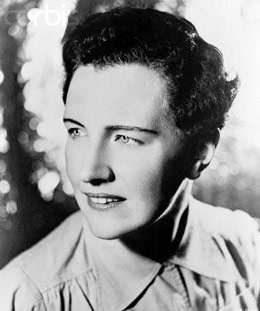A Quote by Carl Jung
But what will he do when he sees only too clearly why his patient is ill; when he sees that it arises from his having no love, but only sexuality; no faith, because he is afraid to grope in the dark; no hope, because he is disillusioned by the world and by life; and no understanding, because he has failed to read the meaning of his own existence?
Related Quotes
When the father dies, he writes, the son becomes his own father and his own son. He looks at is son and sees himself in the face of the boy. He imagines what the boy sees when he looks at him and finds himself becoming his own father. Inexplicably, he is moved by this. It is not just the sight of the boy that moves him, not even the thought of standing inside his father, but what he sees in the boy of his own vanished past. It is a nostalgia for his own life that he feels, perhaps, a memory of his own boyhood as a son to his father.
But the man who is not afraid to admit everything that he sees to be wrong with himself, and yet recognizes that he may be the object of God's love precisely because of his shortcomings, can begin to be sincere. His sincerity is based on confidence, not in his own illusions about himself, but in the endless, unfailing mercy of God.
He is not simply looking into the mirror because he is transfixed by what he sees. Rather, the artist’s success depends as much as anything on his powers of detachment, on de-narcissizing himself… Freud… studied his own dreams not because he was a “narcissist,” but because he was a student of dreams. And whose were at once the least and most accessible of dreams, if not his own?
Why?" asked her companion. "Why do you love him when you ought not to?" Edna, with a motion or two, dragged herself on her knees before Mademoiselle Reisz, who took the glowing face between her two hands. "Why? Because his hair is brown and grows away from his temples; because he opens and shuts his eyes, and his nose is a little out of drawing; because he has two lips and a square chin, and a little finger which he can't straighten from having played baseball too energetically in his youth. Because - " "Because you do, in short," laughed Mademoiselle.
The Lord gave the wonderful promise of the free use of His name with the Father in conjunction with doing His works. The disciple who lives only for Jesus' work and kingdom, for His will and honor, will be given the power to appropriate the promise. Anyone grasping the promise only when he wants something very special for himself will be disappointed, because he is making Jesus the servant of his own comfort. But whoever wants to pray the effective prayer of faith because he needs it for the work of the Master will learn it, because he has made himself the servant of his Lord's interests.
When people ask me why I'm amazed at what Barack Obama has accomplished, I tell them it's not because of what most of America and the world sees and knows of his history. It's because I witnessed what I can only describe as a bizarre turn of events that thrust him into position to even become a U.S. senator.
He ran as he'd never run before, with neither hope nor despair. He ran because the world was divided into opposites and his side had already been chosen for him, his only choice being whether or not to play his part with heart and courage. He ran because fate had placed him in a position of responsibility and he had accepted the burden. He ran because his self-respect required it. He ran because he loved his friends and this was the only thing he could do to end the madness that was killing and maiming them.
Fallen man is free to choose what he desires, but because his desires are only wicked he lacks the moral ability to come to Christ. As long as he remains in the flesh, unregenerate, he will never choose Christ. He cannot choose Christ precisely because he cannot act against his own will. His fall is so great that only the effectual grace of God working in his heart can bring him to faith.
Because of social pressure, individualism is rejected by most people in favor of conformity. Thus the individual relies mainly upon the actions of others and neglects the meaning of his own personal life. Hence he sees his own life as meaningless and falls into the “existential vacuum” feeling inner void. Progressive automation causes increasing alcoholism, juvenile delinquency, and suicide.
Life consists of sadness too. And sadness is also beautiful; it has its own depth, its own delicacy, its own deliciousness, its own taste. A man is poorer if he has not known sadness; he is impoverished, very much impoverished. His laughter will be shallow, his laughter will not have depth, because depth comes only through sadness. A man who knows sadness, if he laughs, his laughter will have depth. His laughter will have something of his sadness too, his laughter will be more colorful.
He sees himself in his lover as if in a mirror, not knowing whom he sees, And when they are together, he too is released from pain, and when apart, he longs as he himself is longed for; for reflected in his heart is love's image, which is love's answer. But he calls it, and believes it, not love but friendship.




































